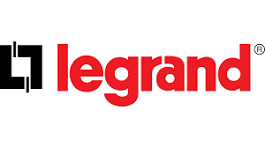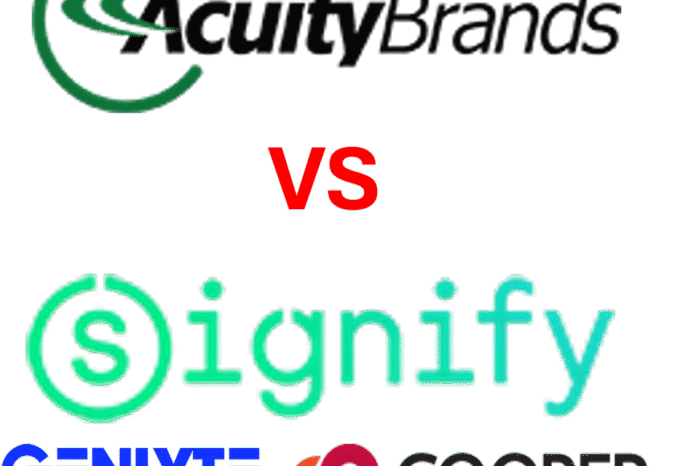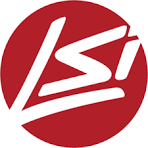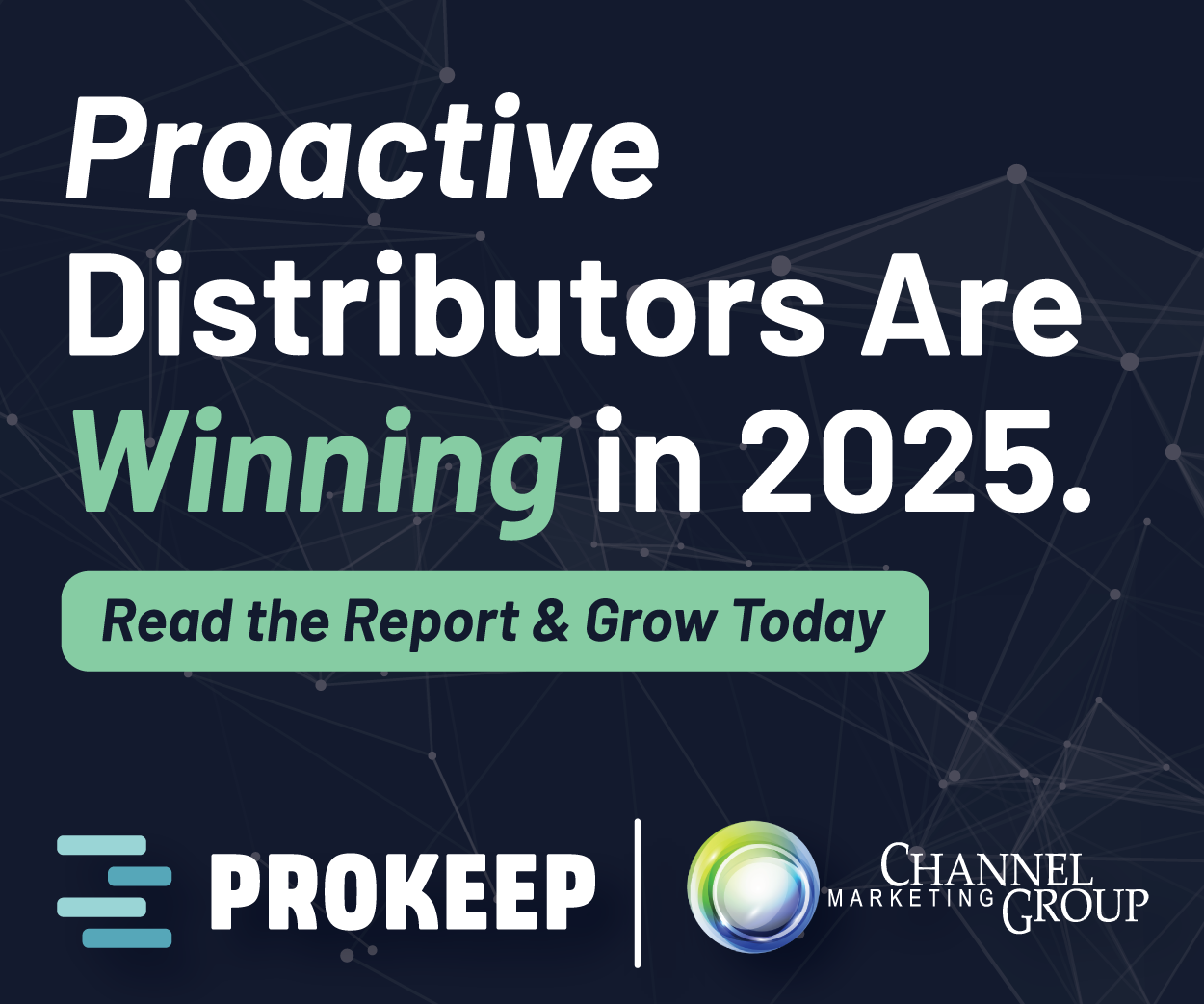Acuity reports their Q3. Market in flux?
Posted On July 8, 2019
0
0 
Last week we released our Q2 Pulse of Lighting report and Acuity, the following day, released their Q3 earnings (they are on a fiscal year). The commonality appears to be “a market in flux”. While Acuity claims share increase in the electrical distribution channel, feedback from over 200 industry participants is that the market grew at a rate greater than Acuity’s sales indicating that sales for non-conglomerate companies continues to grow at a faster rate.
Acuity Says
According to the Acuity analyst call (with comments in italics)
- “Solid results” except for cost pressures, impact of tariffs and uncertainties caused by US trade policy (so, if it wasn’t for external factors, would have been better)
- “Top line growth impacted by pull forward in first half” (meaning Acuity’s Q1 and Q2, which is 2018 Q4 and 2019 Q1. This then says that the most recent quarter didn’t perform too good as people bought earlier in the year when they didn’t know the latest round of tariffs would impact pricing?)
- Had reduced shipments in retail due to elimination of products (if they eliminated, what did big boxes replace those SKUs / shelf space with?)
- Adjusted GM increased to 40.5%. This is an increase vs prior quarters but 110 basis points lower than this time last year (The increase is due to either business mix or benefit of price increases)
- Sales were $948 million, a slight increase (0.4%) YoY with net sales volume up 1%
- Price increase realization contributed “low single digit growth” (meaning, more than 1%, so overall units probably decreased due to the retail decline.)
- Believe that “customers, primarily in the independent sales network channel” pulled orders into Acuity’s first half in advance of price increases
- Independent sales network was up 3% (note, our Pulse of Lighting report shared that distributor sales exceeded 3% and manufacturers and reps reported sales in excess of 6% in Q2.)
- Due to price increases and share increases in some lighting categories as well as lighting controls and building management solutions.
- Grew sales in “lesser featured” items, their Contractor Select offering
- Still not seeing growth in the large project segment
- Corporate and direct sales accounts down due to project timing and completion. This is a volatile segment of the business.
- Continue to see adoption of Atrius-enabled deployments albeit focused on large retailers. (question then becomes, how are distributors participating or what segments can distributors pursue with this offering?)
- Expanding Contractor Select offering (and complained re Chinese manufacturers, but at some point the “complaints” are repetitive and fall on deaf ears … this is a viable element of the market and product quality, according to our Pulse of Lighting respondents, has gotten much better. Part of the issue is a segment of the market is brand agnostic as well as distributors purchasing based upon “ease of doing business” and other preferred sales relationships … and yes, price may matter.)
- Did a number of things that help increase earnings per share to make Wall Street happy.
- Continue to be optimistic, which is a recurring trend in Acuity’s calls and is to be expected, albeit sales performance is middling due to the competitiveness and capacity in the market, but lighting is a product category that outperforms the overall electrical industry for many distributors.
- Outlook
- Believe lighting will lag overall growth rate of construction market due to “product substitution to lower priced alternatives for certain products.” (sounds good to blame on competition!)
- Contractor labor shortages constrict market (this is a significant concern; however, this may become the expectation given the limited number of new entrants to the electrician market and hence manufacturers, and analysts, will need to factor into their projections.
- Pricing actions should be favorable to growth (especially when tariff increases are realized, which will be sometime over the summer given many national chains require advance notice and projects that were previously quoted will have their pricing honored.
- Expressed concern that the tariff situation could have a “dampening effect on overall demand”.
- Expect net sales to be down in Q4 (this summer) versus last year primarily due to comparisons caused by the retail channel.
- Decision to stop selling some SKUs that didn’t meet profitability objectives will further reduce sales (surprising not replacing revenue with “better” performing products. To retain net profitability, presuming these products generated profit, the company must be cutting some recurring costs.)
- Analyst questions
- From price increase, have experienced good price realization (it will be interesting to see how Acuity responds if / when tariffs are rolled back or, and more likely, they will only roll-back based upon competitive pricing pressures from Chinese manufacturers / companies that source from China and do not have end-user / specifier brand awareness. How Acuity responds could impact its market share.)
- Acuity is seeking to become easier to do business with as recognizing that this is important for competing against lesser featured manufacturers. (distributors, is Acuity succeeding in this?)
- Acuity is increasing its marketing message related to product quality to “sell the difference.” (Distributors, what are you seeing Acuity doing? What tools are they providing to you? What would you like to see / receive either direct from Acuity or via your Acuity rep? Is Acuity’s regional sales managers who are exclusively responsible for stock / flow goods influencing your decision to stock and recommend Acuity? Are they helping you with contractors? Training your sales team / contractors on Contractor Select’s benefits?)
- An analyst asked about the impact of tariffs in pulling forward business that would have essentially been planned for the summer. Acuity believes more happened earlier in the year but that anecdotally some has occurred now with distributors allocating space to holding orders (our Pulse of Lighting report shares input that distributors did place orders / receive commitments for projects to avoid the increased tariff-driven price increases).
- Note: Reportedly for larger projects, much of Acuity’s products are made in North America and are not subject to tariffs
Other lighting news
- OSRM Licht AG was sold to private equity firms Bain Capital and Carlyle Group. While OSRAM previously sold what is now LedVance so isn’t involved in directly in the US electrical distribution lighting market, it is interesting that the deal was done at a discount to what OSRAM expected, which is an indication of the valuation of LED companies. Reportedly “earnings deteriorated during negotiations” and the private equity firms were able to “push down the offer price.” Acquirers feel that there should be potential, but are discounting the value of the business. The private equity firms had to invest more equity (70%) than they usually do for this type of deal (couldn’t raise debt to finance the deal.
The questions then become:
- Is Acuity right? Was business pulled into 2018 Q4 and 2019 Q1? Was Q2 slow?
- Is Acuity taking share from “lesser featured” manufacturers?
- Are they becoming easier to do business with?
- What does this portend for the summer? Is there business out there? Was it pulled into the spring? Or is there still demand and lighting sales should be higher due to tariff prices?
- A question Acuity doesn’t answer … “what percent of their SKUs, or sales, are affected by the tariffs?” (or, alternatively, what percent is made somewhere other than China?)
- While the OSRAM deal doesn’t directly affect the US lighting market, could Bain and Carlyle decide to expand their lighting investments and pursue Eaton Lighting? (and is Eaton’s lighting plan currently a spinoff because it couldn’t be sold at an acceptable price? And, realistically, what is the IPO valuation?)
- And, what is your summertime outlook?
Trending Now
nVent Has a Record Quarter Powered by AI/Data Center Demand
February 16, 2026
Legrand’s Record Growth Driven by Data Centers With >50% Growth in US
February 16, 2026






















